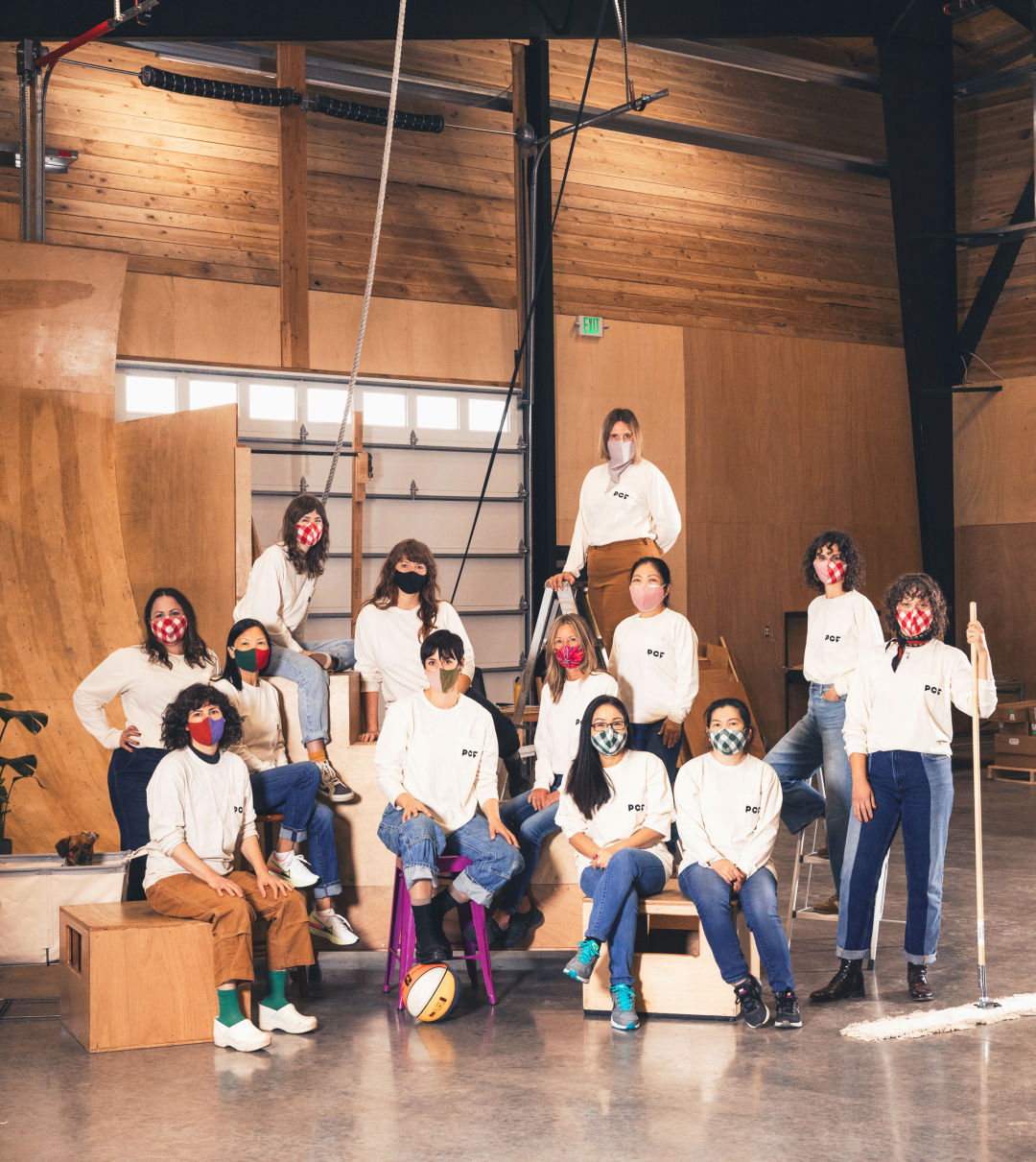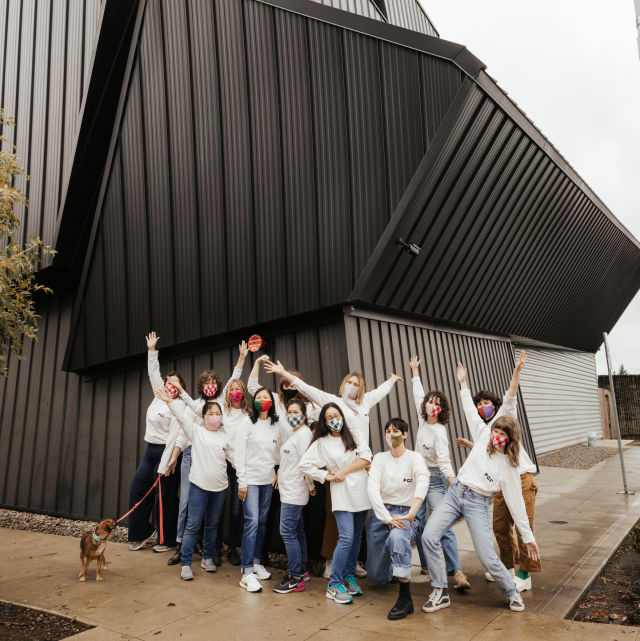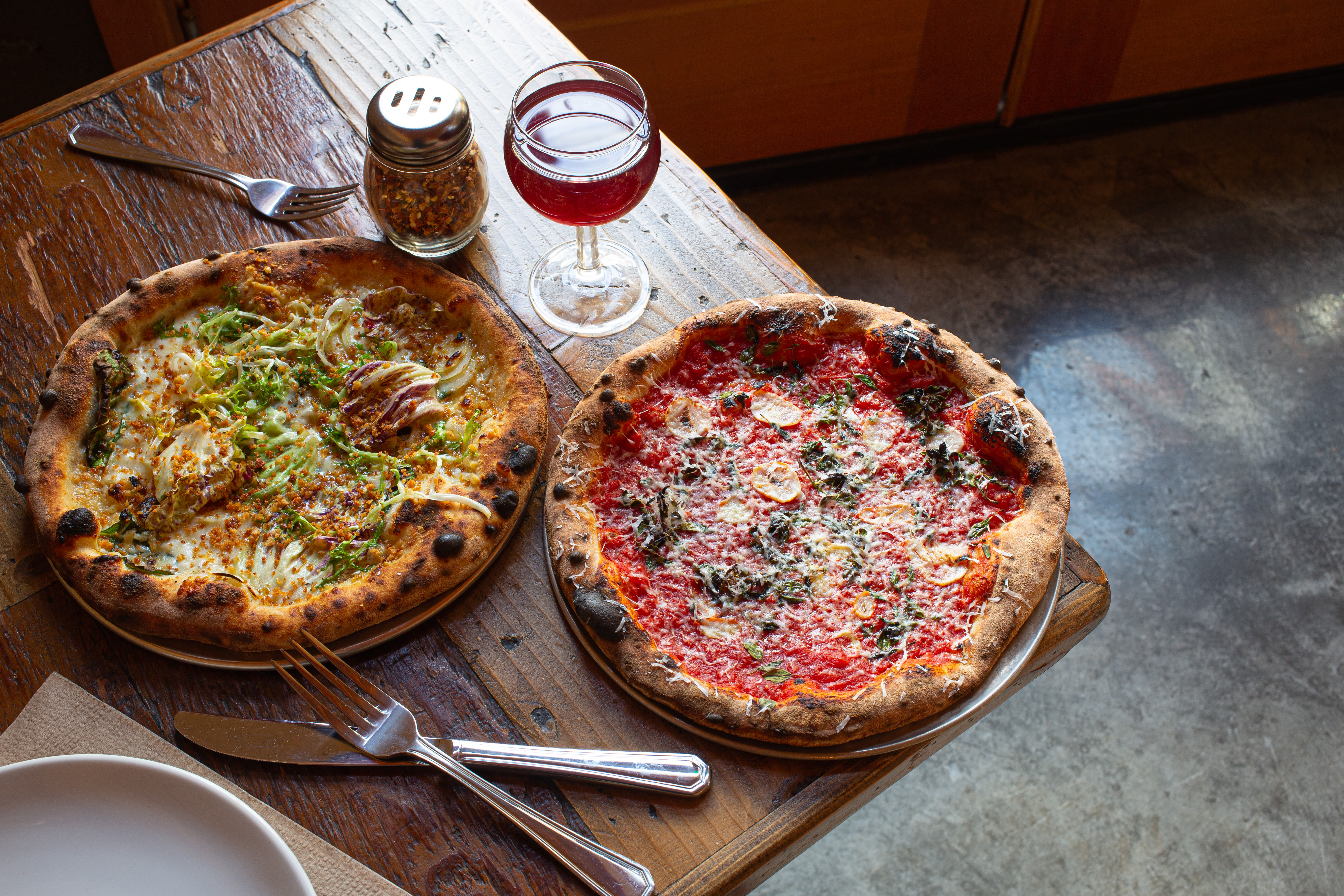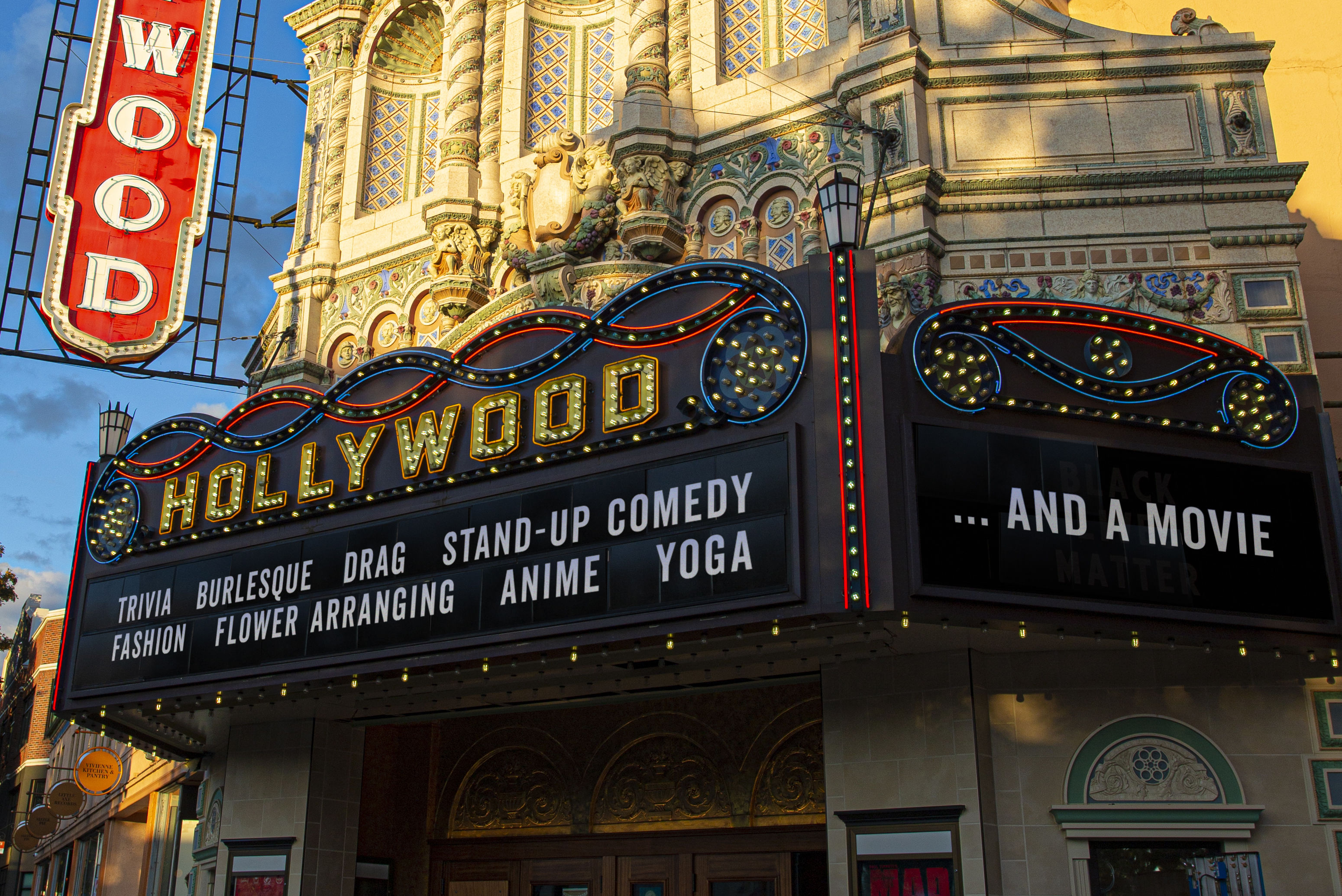After a Devastating Fire, the Portland Garment Factory Is Back

The Portland Garment Factory team gathers inside their new space.
Image: Jay Buezo
After a massive fire last April gutted the Montavilla building into which she’d poured 13 years of her professional life, Portland Garment Factory founder Britt Howard found herself drawn back to the site, the way that a mother can’t pull herself away from a sick child’s bedside.
And when her 13 employees met to grieve together at the brewery across the street from the still-smoldering building on the day after the fire, Howard asked them to dream really big about what they’d want in a new space where they could continue their collective work of design and production of all sorts of textiles, from small-batch run fashion lines for local designers to huge commissions and installations for corporate clients like Nike and Snowpeak.
At first, the staff asks were small: dedicated workspaces, more electrical outlets, relatively move-in ready.
Then, people started to step out: Solar panels made the list, and a dog run. An area to do yoga, and a break room big enough for a couch on which to sneak a midday power nap. A giant garage door that could open for fresh air and for ease of moving heavy-duty machinery in and out. A basketball hoop. Howard herself wanted a swing, because why not?

Image: Courtesy Jay Buezo
Six weeks after the fire, she’d found a new space that—miraculously, unbelievably—checked essentially every box. (A GoFundMe organized by friends of PGF raised more than $100,000 to help with the costs.) And now, six months after the fire, which was sparked when a houseless person set a nearby dumpster ablaze, Portland Garment Factory is getting ready to reopen in its new home, the architecturally-forward site of the former home of Forge Parkour at 311 SE 97thAvenue.
“We had been looking to lease another building,” Howard says. “And then I found this. It was one of those serendipity moments, and I was able to buy the building. I just feel so grateful and I can’t believe it.”
It’s a rare-enough feel good story in Portland business right now, amidst grim news about corporate headquarters relocating for the suburbs, stubborn retail vacancy rates, and downtown development deals falling through. And of course, the other side of the coin is Forge Parkour, which struggled to stay afloat in the pandemic and ultimately didn’t make it through, despite a space specially designed for the sport, including massive wooden climbing structures and custom rubber flooring to cushion any falls.
After the fire, Howard heard rumors that she herself was going to give up, which would have been a huge blow to a business that’s been celebrated by national media for starting up an eco-conscious alternative to the vast tides of fast fashion created by workers laboring under subpar conditions for minimal pay.
For the record, shutting down was never in the cards, Howard says. In fact, the fire came at a time when she’d been feeling more creatively inspired than ever—commissions were coming back, after months in which her talented staff had focused on producing masks and other pandemic-related equipment for local hospitals and other outlets.
The fire paused, but didn’t stop PGF's momentum. Now, Howard and her team are reimagining their new space. All that blonde wood and rubber will be softened with textiles everywhere—think cozy rugs, curtains, fiber art on the walls, a nook with a hammock, stair-runners. Getting up and running has been slower than Howard would have liked, particularly given global supply chain issues that have held up deliveries of the industrial equipment used by her crew. She’s not making hard-and-fast promises, but is hoping to have her crew—all of whom have stuck with her through the six months of rebuilding—back at work in the new space by November.
It’s helpful, Howard says, that the pandemic and its attendant issues have forced even the notoriously fast-paced fashion industry to take a beat and have some patience with deadlines and turnaround times on orders. The new space is double the size of the old one, which Howard says she hopes will give her staff a chance to flex their collective muscle on new projects, like retail installations, construction of lighting displays, collaborations with interior designers and textile artists, and an expanded focus on upholstery and soft goods.
“It’s been kind of cathartic to reimagine the business and just try to be positive,” Howard says. “And how are we going to take this opportunity that we were given in starting over? And how can we be better and how can we make this the version that we always wanted?”




